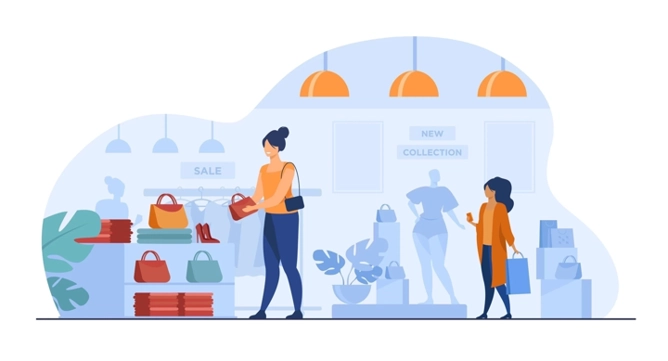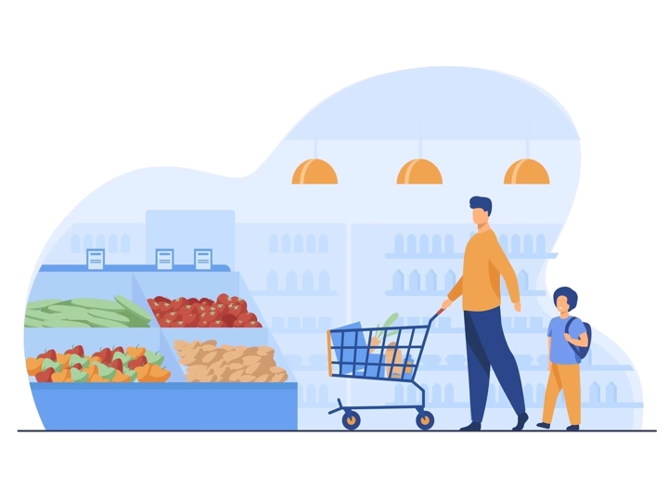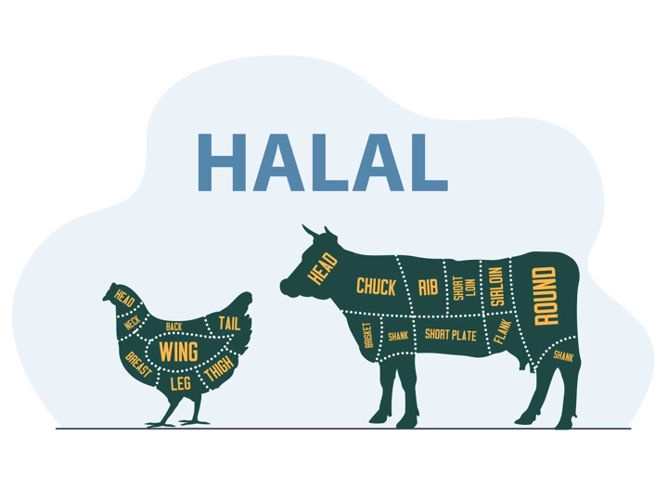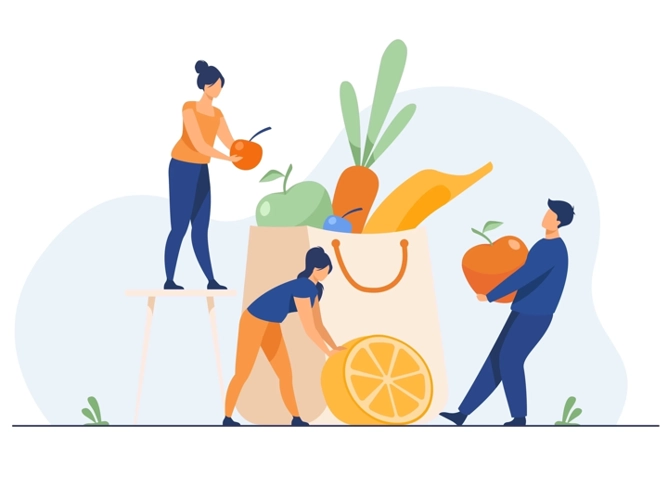
Your Guide to Shopping in Germany
Your Guide to Shopping in Germany
Shopping in Germany: A Comprehensive Guide for Expats
Introduction
Have you ever stood in a German supermarket, overwhelmed by unfamiliar brands and labels, wondering if you’re getting the best value for your money? Or maybe you’ve been caught off guard by store closures on Sundays, or struggled to find your favorite foods from home? If so, you’re not alone. Shopping in Germany can be a surprisingly complex experience for expats, blending cultural quirks, practical challenges, and a wealth of choices that can leave even the savviest shopper scratching their head.
At liveingermany.de, we’ve guided thousands of expats through the ins and outs of German life, including the unique shopping landscape. This pillar article is your all-in-one resource for navigating supermarkets, fashion, markets, and online shopping in Germany. Drawing on authoritative sources and lived expat experiences, we’ll cover everything from budget grocery tips to finding international foods, sustainable fashion, and smart shopping hacks—so you can shop confidently, save money, and feel at home.
Expat Challenges and Context
Moving to Germany means adapting to a new way of shopping—one that’s often more structured, sustainable, and sometimes more bureaucratic than you might expect. Many expats are surprised by the range of supermarket chains, the strong second-hand culture, and the emphasis on organic and local products. There’s also a learning curve with payment methods (cash is still king in many places), recycling systems for bottles, and the strict regulations around store hours.
“I was so used to 24/7 grocery stores back home. I didn’t realize most supermarkets in Germany close by 8pm and are shut on Sundays. I had to plan my meals more carefully and get used to shopping at local markets for fresh produce.”
— Sarah, expat from the UK
Experiences like Sarah’s are common—and with the right guidance, you can turn these challenges into opportunities to save money, discover new favorites, and integrate into German culture.
According to HousingAnywhere, Germany’s supermarket landscape is divided by price and specialty, from discounters like Aldi and Lidl to premium organic chains such as Denn’s Biomarkt and Alnatura. Online shopping is booming, with platforms like Amazon Fresh and REWE Online delivering groceries to your door. And in major cities, international supermarkets cater to every taste, making it easier than ever to find familiar products from home.
Supermarkets and Grocery Shopping
Germany’s supermarket hierarchy caters to every budget and preference:
- Budget-Friendly Options: Aldi, Lidl, Penny, Netto, and Norma offer high-quality products at low prices (source). These discounters are a staple for students, families, and anyone looking to stretch their euros.
- Mid-Range Supermarkets: REWE, Edeka, Kaufland, and Real provide a wider selection, including specialty and international items (source).
- Premium Organic Stores: Denn’s Biomarkt and Alnatura focus on organic and sustainable products, catering to health-conscious shoppers.
- Online Grocery Shopping: Services like Amazon Fresh, REWE Online, Flink, and Gorillas deliver everything from fresh produce to household essentials (source).
- International Supermarkets: Berlin and other large cities have stores specializing in foods from Asia, the Middle East, Africa, and America, ensuring you never have to miss the tastes of home.
Cultural Insight: Don’t forget to bring your own bags—plastic bags are rarely free, and sustainability is taken seriously. Also, be prepared for the famous speedy checkout experience: cashiers are fast, and you’ll need to bag your groceries quickly!
Clothing and Fashion
Shopping for clothes in Germany is a blend of practicality and style. Many expats are delighted by the quality of German-made clothing, but prices can be high—unless you know the local tricks:
- Shop Off-Season: Buy winter clothes in spring and summer outfits in autumn for the best deals (source).
- Mix High and Low: Combine affordable basics from discounters with statement pieces from boutiques or vintage shops.
- Online Shopping: Platforms like Zalando and About You offer competitive prices and easy returns.
- Second-Hand and Thrift Stores: Chains like Humana and Oxfam, plus online platforms like Vinted, make it easy to buy and sell pre-loved fashion. This is not only budget-friendly but also sustainable.
- Suit Shopping: In Germany, blazers and trousers are often sold separately, allowing you to hunt for bargains and build your wardrobe over time.
Markets and Traditional Shopping
Traditional Markets:
Weekly markets are a cornerstone of German shopping culture, offering fresh produce, flowers, cheese, meats, and handmade crafts (source). Visiting a market like Hamburg’s Schillermarkt is not just about shopping—it’s a social and cultural experience.
Flea Markets:
Berlin, Munich, and other cities host regular flea markets where you can find vintage clothing, antiques, and unique treasures. These markets are perfect for finding one-of-a-kind items and practicing your German with friendly local vendors.
Convenient Shopping Options
Meal Kit Services:
For busy expats or those struggling with meal planning, meal kit services like HelloFresh deliver pre-portioned ingredients and recipes right to your door (source). This is an excellent way to learn German cooking and save time.
Explore More Shopping Resources
How to Get Verpflichtungserklärung (Obligation Letter) in Germany
The Verpflichtungserklärung process in Germany is crucial for expats who wish to invite friends or family for a visit. This comprehensive guide explains the purpose, costs, and requirements for obtaining an obligation letter, which is often necessary for short-term visas. It clarifies the distinction between an obligation letter and an invitation letter and provides step-by-step instructions to ensure compliance with German authorities. If you’re planning to host visitors, understanding this process can help you avoid bureaucratic pitfalls and ensure a smooth application.
Inviting Family and Friends to Germany
Inviting family and friends to Germany can be a bureaucratic challenge, especially when it comes to securing the right visa. This article breaks down the types of invitation letters required for private visits, business trips, and family reunions. It also outlines the host’s obligations and the information that must be included in these letters. By following these guidelines, you can help your loved ones navigate the visa process with confidence.
Getting Married in Denmark Guide
If you’re considering marriage as an expat, Getting Married in Denmark is a popular option due to its straightforward legal requirements. This guide covers everything from eligibility and necessary documents to the costs and steps for obtaining a Danish marriage certificate. It also highlights the dos and don’ts of document submission and the final steps needed to register your marriage back home—a must-read for international couples.
Essential Steps when Leaving Germany
Planning to leave Germany? The Essential Steps when Leaving Germany guide is invaluable. It covers everything from informing your employer and landlord to canceling insurance policies and deregistering with authorities. Proper planning ensures you avoid financial penalties and legal issues, making your transition to a new country as smooth as possible.
Re-entry Certificate for Germany
For expats planning extended stays outside of Germany, the Re-entry Certificate for Germany guide explains how to maintain your residence permit’s validity. It details the importance of notifying the Foreign Office, the documentation required, and the rules for different visa types. Staying informed can prevent complications when re-entering Germany.
City Registration Process in Germany
The City Registration Process (Anmeldung) is one of the first steps for any expat arriving in Germany. This guide walks you through booking appointments, gathering documentation, and understanding the importance of timely registration for accessing essential services like bank accounts and internet. It also covers address changes and deregistration—a must for every newcomer.
Navigating Bureaucracy in Germany
Navigating Bureaucracy in Germany offers a deep dive into the German administrative system, with practical resources and a chatbot to help answer your questions. Whether you’re struggling with paperwork or just want to understand the system better, this guide is a valuable resource for all expats.
Practical Tips for Expats
- Plan Ahead: Most supermarkets close by 8pm and are closed on Sundays. Stock up in advance and use local markets for fresh produce.
- Bring Cash: While card payments are becoming more common, many smaller stores and markets still prefer cash.
- Recycle for Savings: Return bottles to get your Pfand (deposit) back—an easy way to save and support sustainability.
- Shop Second-Hand: Explore thrift stores and online platforms for affordable, sustainable fashion.
- Use Apps: Download apps like Bring! for grocery lists or Too Good To Go for discounted food from local shops.
Reflective question: What’s the biggest shopping challenge you’ve faced in Germany, and how did you overcome it?
Contextual Affiliate CTAs
Need a reliable supermarket nearby? Try Netto Store or Lidl for affordable groceries and everyday essentials. Find a store near you.
Looking for international groceries? Check out Yababa for Middle Eastern products, dookan for Indian groceries, or Grocera Halal for halal foods. Shop now.
Keen on meal kits? Try HelloFresh for convenient, healthy meals delivered to your door. Get started.
(Affiliate links – we may earn a commission at no extra cost to you.)
Conclusion
Shopping in Germany as an expat can be an adventure—one that’s filled with opportunities to save money, discover new favorites, and embrace local culture. By understanding the supermarket hierarchy, making the most of markets and second-hand shops, and leveraging online and meal kit services, you’ll shop smarter and feel more at home. For more tips, resources, and expat stories, explore liveingermany.de—your trusted guide to life in Germany.
Verified as of May 2025. Sources: liveingermany.de/germany-supermarkets/, HousingAnywhere, Kummuni, TripAdvisor.







